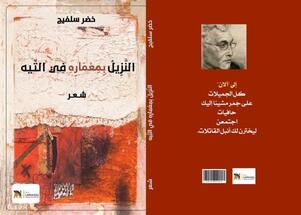-
What If Iran Prefers to Live Peacefully? "Part 22"

What If Iran Prefers to Live Peacefully? One should talk of "The real chaos" about the constant Government turmoil and the embarrassing mismanagement in securing the COVID vaccine.
Not to mention its vaccination campaign, which is failing when compared to its neighboring countries vaccination record. What is demonstrated from this government is absolute disruption. Coinciding with some unjustified doubts about the locally made vaccine, the mismanagement on how to secure the imported one and how distribute it. Unfortunately, nothing good has happened in these areas. People are aware that like our country, the developed nations and even the Western neighbor (Turkey) have vaccinated most of their people and are gradually lifting the lockdown restrictions. The question is why isn't Iran like the rest of world? For how long will silence camp over this obscure governmental failure?
What If Iran Prefers to Live Peacefully? The religious tyranny from the reign of Ardashir I (180-242 AD) to the Khamenei Constitution, which is vital for the Persian political legacy, and consequently helped build Khamenei's political and State ideology later from the position of religion in governance. Not to mention the relationship between religious leaders and the State's institutions where religion and the State are seen as one. Ardashir I revived the Zoroastrian religion, destroyed the idols and removed images. He gave the clergy broad authority in the management of the State. This is similar to what the Iranian state practices today in the Khamenei reign, which is what Shabestari calls a "cultural state." It is what Khamenei is doing through the persecution of hundreds of Iranians under the name of faith, freedom of speech and sectarianism. Ardashir and the current regime have not hesitated to use excessive force, abuse and murder to achieve its objective: "The King's well-being."
What If Iran Prefers to Live Peacefully? Iran's 1905 constitutional revolution, the alienation of Iranian cultural and political life; for us then to see Khomeini's hostility and his alignment with Sheikh Fazlullah Al - Nuri's "tyrannical" head of jurisprudence, and the first enemy of the constitutional revolution.
Khomeini says of the 1906 Constitution: "What does the Constitution all have to do with Islam? There is a fundamental difference between the "Islamic" government on the one hand and the constitutional monarchy or the Republic on the other. While representatives of the people or the King in recent systems have full legislative power, the legislative power of Islam and the power to legislate are exclusively for God who created all. No one has the right to legislate. No law may be implemented other than the Divine Legislator. "
Thus, Khomeini and his followers show the main issue at stake between them and Constitutionalism. It is that the Constitution gives the public the freedom to choose, to vote, and consequently the power to have legislative authority, Khomeini rejects this right and takes it away from the public; Because, in his view, the legislature is exclusively for God and enforced by the supreme leader of Iran.
What if Iran prefers to live peacefully? Its radical reading of religion and doctrine, contrary to the common Houzoui heritage of political thought, and its enlightenment of its ideas and its way of managing public affairs, but also its merging and intersecting of that reading with another radical reading of the Persian political legacy, reflecting on public matters, of various thorny issues at home and abroad. One of the most important leaders of "conservatism," Ebrahim Raisi, won the 13th presidential election, following accusations of election manufacturing by the Council for the Maintenance of the Constitution and a large boycott of the Iranian public.
What if Iran prefers to live peacefully? And the position of the people in the system of government, to paint a phase that is a consecration and extension of Khomeini-Ardshiri thought, which is likely to last a long time. This is evident in the person who was introduced as President of the country, Ebrahim Raisi, who is one of the perpetrators of the downfall of Flight 752. He was one of the main members of the Supreme Council for National Security and a perpetrator of other crimes, in the last four decades in Iran. It makes one think about the rights of the Ukrainian aircraft victims' families and how he should not be allowed to be removed from the international sanctions list. Matter of fact he should be added to the list of persons subject to sanctions by Canada and other States

BY: khalid Aljasir
Tags
You May Also Like
Popular Posts
Caricature
BENEFIT Sponsors BuildHer...
- April 23, 2025
BENEFIT, the Kingdom’s innovator and leading company in Fintech and electronic financial transactions service, has sponsored the BuildHer CityHack 2025 Hackathon, a two-day event spearheaded by the College of Engineering and Technology at the Royal University for Women (RUW).
Aimed at secondary school students, the event brought together a distinguished group of academic professionals and technology experts to mentor and inspire young participants.
More than 100 high school students from across the Kingdom of Bahrain took part in the hackathon, which featured an intensive programme of training workshops and hands-on sessions. These activities were tailored to enhance participants’ critical thinking, collaborative problem-solving, and team-building capabilities, while also encouraging the development of practical and sustainable solutions to contemporary challenges using modern technological tools.
BENEFIT’s Chief Executive Mr. Abdulwahed AlJanahi, commented: “Our support for this educational hackathon reflects our long-term strategic vision to nurture the talents of emerging national youth and empower the next generation of accomplished female leaders in technology. By fostering creativity and innovation, we aim to contribute meaningfully to Bahrain’s comprehensive development goals and align with the aspirations outlined in the Kingdom’s Vision 2030—an ambition in which BENEFIT plays a central role.”
Professor Riyadh Yousif Hamzah, President of the Royal University for Women, commented: “This initiative reflects our commitment to advancing women in STEM fields. We're cultivating a generation of creative, solution-driven female leaders who will drive national development. Our partnership with BENEFIT exemplifies the powerful synergy between academia and private sector in supporting educational innovation.”
Hanan Abdulla Hasan, Senior Manager, PR & Communication at BENEFIT, said: “We are honoured to collaborate with RUW in supporting this remarkable technology-focused event. It highlights our commitment to social responsibility, and our ongoing efforts to enhance the digital and innovation capabilities of young Bahraini women and foster their ability to harness technological tools in the service of a smarter, more sustainable future.”
For his part, Dr. Humam ElAgha, Acting Dean of the College of Engineering and Technology at the University, said: “BuildHer CityHack 2025 embodies our hands-on approach to education. By tackling real-world problems through creative thinking and sustainable solutions, we're preparing women to thrive in the knowledge economy – a cornerstone of the University's vision.”
opinion
Report
ads
Newsletter
Subscribe to our mailing list to get the new updates!






















